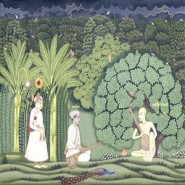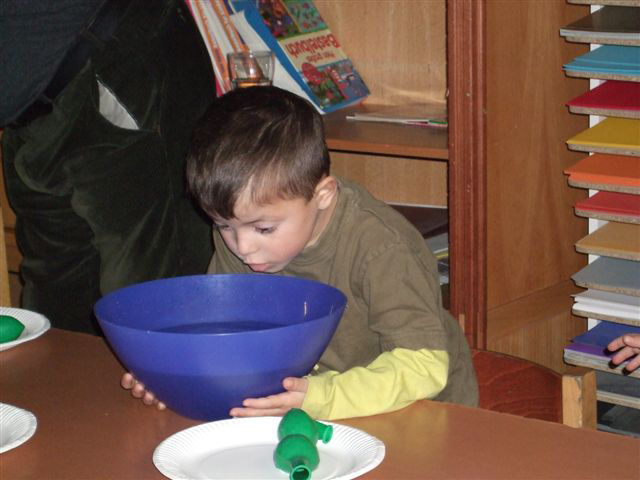Crossing Borders Of Perception
Reflections On Listening To Shahid Parvez
The experience of complete silence prevailing for more than a few seconds is rare or almost inaccessible anywhere these days. We are constantly surrounded by artificial sounds. We have become used to being exposed to them without being aware of it. Natural sounds have become a thing of the past. Birds singing, a breeze stirring the leaves of a tree, water running over stones -- the raw ingredients of music -- a child crying or laughing, someone moaning or humming, release immediate emotions, empathy, or awaken images and memories perhaps long forgotten, reminiscences deeply buried in some channels of our brain.
Structured sound obeying laws of musical scales creates a similar atmosphere of acoustic perception. It attracts our ear as if we were driven by some archaic impetus seeking dimensions of metaphysical solitude. It is in this dimension that our soul begins to transcend into spheres of emotional harmony, discovering thereby an overwhelming universe of feelings and identities otherwise inaccessible and untranslatable into words or images. Our brain and our mind are unable to transcribe the musical experience into any known categories, except perhaps into musical categories itself. This may be so because the visual and acoustic stimuli are the only means helping a newborn to perceive the world around him. Perhaps music is the only pathway to go beyond the cognitive limitations of perception, the only adequate balance between sound and silence, the only meditative way to bear the silence when all questions remain unanswered. The Gods are silent. In this context every second of musical perception is like a move into a state of flux where there is no pause or a chance of looking back. One is carried away by the continual change -- one never steps into the same stream again.
The music of the Subcontinent is remarkable in the sense that the performer creates musical ideas from the nascent ideas of a Raga. He or she is therefore also an ad hoc composer. The brilliance of a performer thus represents the brilliance of the musical soul communicating to us in terms of sequences of Sur and Taal. Complete concentration is a prerequisite to capture and appreciate the sublime compositions born in that very second they enter our ear and will never be performed and never be heard in the same colours again. In this context this music is absolutely unique. Indian Music should not be regarded as an art that has remained unchanged over the centuries.
There are some other misconceptions about the music of the Subcontinent. It is believed that different Ragas evoke a specific mood closely related to the respective structure of the Raga. The term "mood" means state of feelings at a particular time. But listening to music is a process whereby our soul corresponds unconsciously to notes and thus exposes ourselves to feelings going through a continuous process of changing colours. In words of Leibnitz:
Music is the arithmetical exercise of the soul whereas the soul is not conscious that it is counting.
It is also pointless to compare Western classical music to Indian classical music. Both are entities with a singular existence. One can add one to the other by listening to both of them. Understanding one language may help us to understand the language of the other. Perhaps all musical manifestations have the same grammar for the soul; only the alphabet is different.
The starting point of the Raga is the Alaap. Though we do not know what, if any, its literal meaning is, we do understand that it is a compendium of all ideas the performer will present as he goes through different phases of the Raga. By how a performer composes the Alaap, one begins to understand the language and the depth of the language.
Artists like Ustad Shahid Parvez have given the Raga its timeless magnitude. The first notes come from somewhere deep and dark and soon the refrain is built up. The different notes of the Raga are approached in myriads of ways, linked by phrases of increasing complexity and contrast. Shahid Parvez makes the notes sing, giving them the colours of a vocal performance. The metallic timbre characteristic of string instruments is almost absent and one really begins to sing with him, begins to repeat the refrain again and again following the vibrating notes, every reprise evoking a new musical message. Some notes seem to stand still holding the passage of time, until they fade away like whispers and sighs. The transition from one phrase to the other, from high notes to deep ones is breathless. Indeed the structure of Alaap is strangely hermetic in the sense that all the attributes like pain and longing (Tamana), humility and inspiration, grief and joy, hope and futility are packed together in a few notes. Alaap, which is more like an adagio and in free rhythm, gradually acquires a more rhythmic structure and culminates in ecstasy. I wonder what emotional effect would reflecting on the origin and recapitulating have. I wonder if it could end in a question, a counterpoint, slowly fading away into deep silence.
The following parts of all Ragas are devoted to variations and communication with the tabla player. Shahid Parvez's variations reveal his tremendous capacity for invention and one is often delighted by the elegance and humour of his spontaneous and completely unexpected combinations. Here again you are a witness to a singular phenomenon: that the same thing can be said again and again and still each repetition is a transposition of a novel musical message. And all of it comes so easy as if it could not be said in any other way.
One very particular characteristic of the performance is his effortless ability to integrate the tabla player. The partner, the tabla player, is always present right from the beginning - silent throughout the Alaap. When the tabla breaks its silence you immediately feel the harmony of mutual understanding. You are amazed how perfectly one can anticipate what the other one will say in all phases of variations. Such deep understanding can only be achieved in musical dialogue - words are inadequate and too abstract for such sublime communication.
It is not only here that you, the recipient, is made aware of your humbleness and insufficiency. It is indeed a deficiency of our culture that not every one is given the chance to sing or to play an instrument, to refine the soul and maybe for seconds catch a glimpse of infinity and eternity.
About the author:
Dr.Salman Ansari is settled in Germany since 1958, where he completed his high school and university studies. He holds a PhD in Chemistry and is a specialist in integrated science education. He has written plays and short stories for German Radio. Dr.Ansari is fully conversant with the technicalities of Western classical music. His perspective on Indian music should therefore be of interest for the general reader.
Reference: sitarplayer.net
May 2006
















